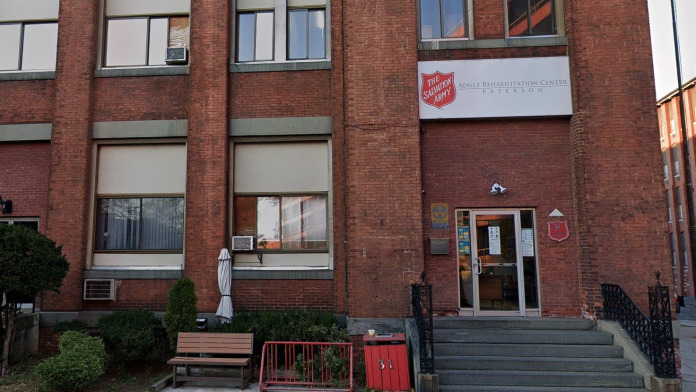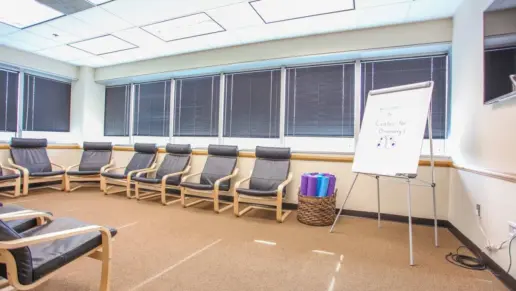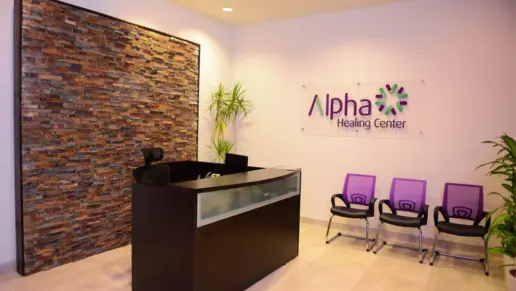I really appreciate how the Salvation Army has helped the community in providing great services . I have frequent the churches in the past and found it to be very rewarding in serving the Lord. Salvation Army has given back to so many people on a daily basis. People are gra ...
About The Salvation Army Adult Rehabilitation Center
The Salvation Army Adult Rehabilitation Center in Paterson, New Jersey, offers a residential drug and alcohol rehab program for adults aged 21 to 65 experiencing substance or alcohol use disorder. Their 180 day residential work and therapy programs are Christ centered and offer spiritual, emotional and social support.
Salvation Army residential programs are generally offered free of charge once staff assess applicants for fit. Participants must be sober on arrival and must be able to work eight hours per day with flexible scheduling. The program includes education, counseling and worship services.
Salvation Army is committed to helping reunite families impacted by drug or alcohol use by teaching social, life and work skills. Their focus on spiritual health provides a faith community on which participants can rely. The combination of reliance on Jesus, development of social skills and counseling creates a holistic healing environment.
The Salvation Army has a long history of contributing to families and communities, and the Paterson center is no exception. People who have participated in this program love that they got help without having to find a way to pay high costs. They mentioned the strong faith component and caring staff. The Salvation Army can be a good option for no cost, faith based recovery.
Rehab Score
Gallery

Location
Addiction Treatments
Levels of Care
Treatments
The goal of treatment for alcoholism is abstinence. Those with poor social support, poor motivation, or psychiatric disorders tend to relapse within a few years of treatment. For these people, success is measured by longer periods of abstinence, reduced use of alcohol, better health, and improved social functioning. Recovery and Maintenance are usually based on 12 step programs and AA meetings.
Drug rehab in New Jersey is the process of addressing the complex issues involved with addiction. Challenges are identified and addressed through individual and group counseling. Participants learn how to manage these issues without the use of substances.
A combined mental health and substance abuse rehab has the staff and resources available to handle individuals with both mental health and substance abuse issues. It can be challenging to determine where a specific symptom stems from (a mental health issue or an issue related to substance abuse), so mental health and substance abuse professionals are helpful in detangling symptoms and keeping treatment on track.
Opioid rehabs specialize in supporting those recovering from opioid addiction. They treat those suffering from addiction to illegal opioids like heroin, as well as prescription drugs like oxycodone. These centers typically combine both physical as well as mental and emotional support to help stop addiction. Physical support often includes medical detox and subsequent medical support (including medication), and mental support includes in-depth therapy to address the underlying causes of addiction.
Programs


Clinical Services
Group therapy is any therapeutic work that happens in a group (not one-on-one). There are a number of different group therapy modalities, including support groups, experiential therapy, psycho-education, and more. Group therapy involves treatment as well as processing interaction between group members.
In individual therapy, a patient meets one-on-one with a trained psychologist or counselor. Therapy is a pivotal part of effective substance abuse treatment, as it often covers root causes of addiction, including challenges faced by the patient in their social, family, and work/school life.
Life skills trainings involve all the skills a person must have in order to function successfully in the world. These include time management, career guidance, money management, and effective communication. Truly successful addiction recovery is based on the ability to not only live substance-free, but to thrive. Life skills teaches the practical necessities of functioning in society, which sets clients up for success in life, and therefore sobriety.
Recreational therapy (aka therapeutic recreation) uses creative and fun activities to help with addiction recovery. Recreational therapists lead patients in entertaining and engaging activities like sports or games; art (drawing, painting, sculpture); drama, music, and dance; and/or community outings (field trips) to improve patients' physical, social, and emotional well-being.
Contact Information
31 Van Houten Street
Paterson, NJ 07505


